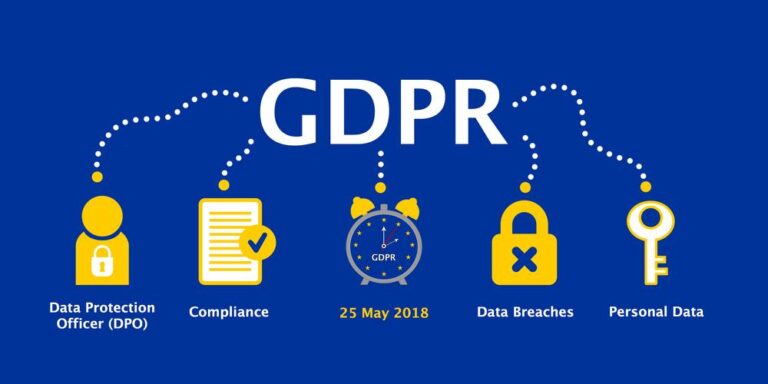The UK Data (Use and Access) Act 2025 has officially received Royal Assent, marking a significant milestone in the nation’s approach to data governance. This groundbreaking legislation aims to enhance the regulation of data sharing and access across public and private sectors, addressing growing concerns over privacy and data security in the digital age. In tandem with the Act’s enactment, the Information Commissioner’s Office (ICO) has published detailed guidance to assist organizations in navigating the new legal framework. This development is poised to reshape how data is managed in the UK, balancing innovation with robust safeguards for individuals’ information.
UK Data Use and Access Act 2025 Gains Royal Assent Marking Major Regulatory Shift
The UK’s regulatory landscape for data management underwent a transformative shift with the enactment of the Data (Use and Access) Act 2025. This legislation introduces comprehensive measures aimed at enhancing transparency, improving data sharing frameworks, and strengthening individual data rights. Notably, the Act mandates organizations to adopt stricter protocols for data access requests and establishes clearer responsibilities in handling personal and non-personal data alike. The Information Commissioner’s Office (ICO) has simultaneously released detailed guidance to support compliance, emphasizing collaboration between public and private sectors to ensure data is used ethically and securely.
The new framework highlights several key reforms:
- Expanded data access rights for citizens, enabling easier retrieval and correction of their information
- Enhanced accountability requirements for data controllers and processors
- Stronger sanctions for breaches and misuse of data
- Promotion of data innovation through clearer parameters on lawful data use
| Aspect | Previous Regime | Post-Act Changes |
|---|---|---|
| Data Access Requests | Lengthy processing times | Mandated response within 15 days |
| Compliance Penalties | Up to £500,000 fines | Fines increased to £1 million plus operational restrictions |
| Data Sharing | Limited inter-agency sharing | Facilitated secure sharing with accountability checkpoints |
ICO Releases Comprehensive Guidance to Support Compliance Under New Legislation
The Information Commissioner’s Office (ICO) has unveiled a detailed guidance package aimed at helping organizations navigate the complexities introduced by the UK Data (Use and Access) Act 2025. This new legislation sets stringent standards for data usage, access protocols, and accountability measures, making compliance crucial for all entities managing personal and sensitive information. The ICO’s document outlines practical steps businesses must implement to align with the act’s requirements, emphasizing transparency, consent management, and robust security frameworks.
Key highlights of the guidance include:
- Enhanced data subject rights with clear instructions on fulfilling access requests promptly;
- New definitions and classifications for types of data and permissible usage scenarios;
- Obligatory impact assessments for high-risk data processing activities;
- Mandatory breach notification timelines to the ICO and affected individuals;
- Strengthened governance policies including staff training and internal audits.
| Compliance Area | ICO Recommendations | Deadline |
|---|---|---|
| Data Access Requests | Respond within 15 days | Effective from July 2025 |
| Breach Notifications | Notify within 72 hours | Immediate |
| Impact Assessments | Conduct prior to new projects | Ongoing requirement |
Experts Advise Organizations to Update Data Practices and Prioritize Transparency
Data protection specialists and industry analysts are urging organizations to reassess their current data handling frameworks in light of the UK Data (Use and Access) Act 2025. The emphasis is increasingly on adopting robust transparency measures to foster consumer trust while ensuring compliance with the newly enacted rules. Experts highlight that companies must not only upgrade their security infrastructures but also implement clear communication strategies that inform individuals about how their data is accessed, processed, and shared. Transparency is no longer just a regulatory checkbox but a strategic imperative for maintaining competitive advantage and securing stakeholder confidence.
Key recommendations issued by the Information Commissioner’s Office (ICO) underscore several actionable steps for businesses:
- Conduct comprehensive audits of data repositories to identify gaps and risks.
- Revise privacy policies to be more user-friendly and detailed regarding data use.
- Enhance user consent mechanisms ensuring clear, affirmative opt-ins.
- Train staff on the implications of the new legal framework and ethical data management.
| Organization Type | Key Data Practice to Update | Transparency Focus Area |
|---|---|---|
| Financial Services | Encryption & Access Controls | Real-time User Notifications |
| Healthcare Providers | Data Consent Management | Patient Data Usage Disclosure |
| Retail and e It looks like your message was cut off at the end. You included a section of an article or webpage content discussing the UK Data (Use and Access) Act 2025 and associated expert advice, including a table of organization types, key data practices to update, and transparency focus areas.
If you want, I can help you: – Complete or extend the table you started. Please let me know how you’d like to proceed or provide the rest of the content if you want a full table or further changes! The ConclusionAs the UK Data (Use and Access) Act 2025 receives Royal Assent, marking a significant advancement in the nation’s data governance framework, organizations and stakeholders are urged to closely review the newly released guidance from the Information Commissioner’s Office. This legislation sets a clear precedent for data use and access standards across the UK, emphasizing transparency, accountability, and enhanced protections for individuals. Moving forward, compliance with the Act will be critical for public bodies, private enterprises, and data professionals navigating the evolving landscape of data regulation. The National Law Review will continue to monitor developments and provide updates on this pivotal area of UK law. |




